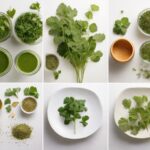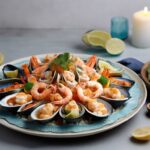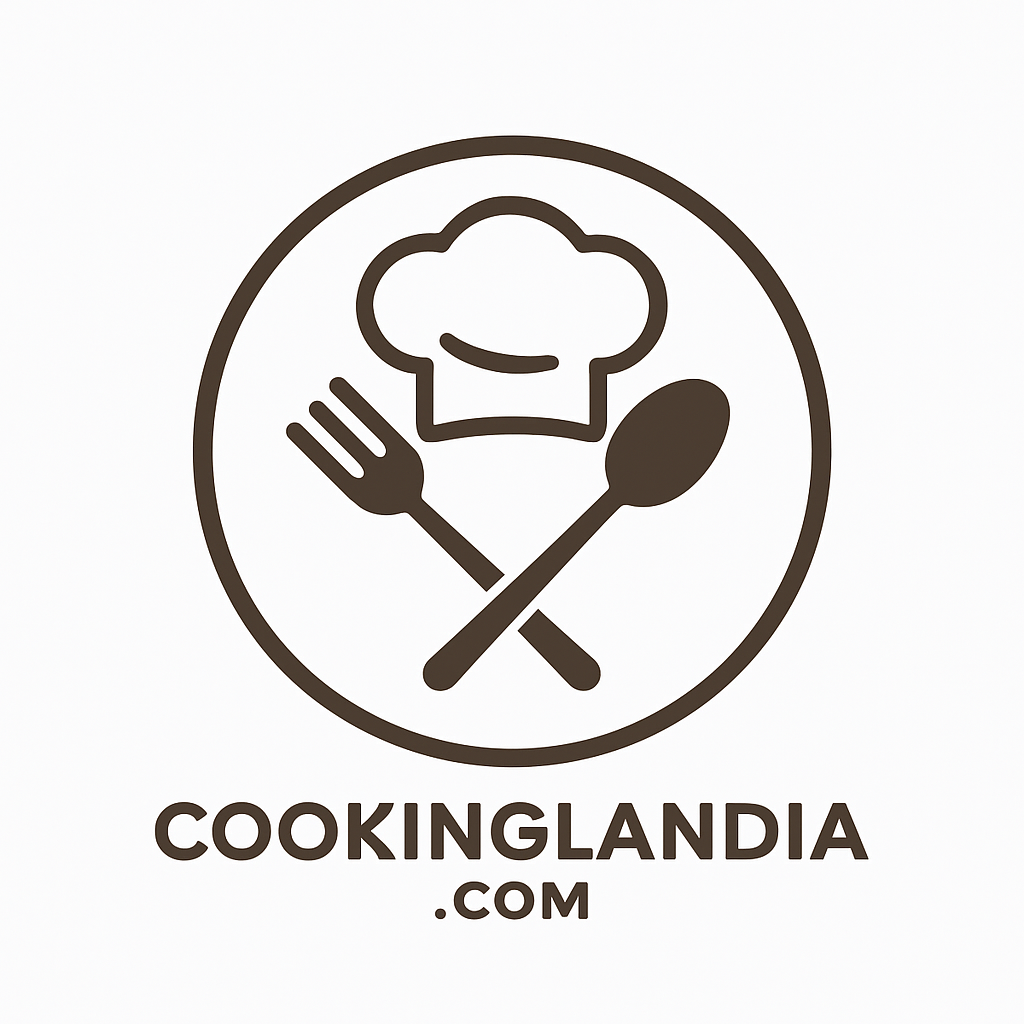Food allergies affect millions of people worldwide, necessitating the need to follow specific diets to avoid triggering adverse reactions. These diets not only require the elimination of certain foods but also a deep understanding of how to maintain a balanced and safe diet. In this article, we’ll explore the ten most crucial tips and recommendations for those who need to follow dietary plans for food allergies.
1. Educate Yourself About Food Allergies
The first crucial step in managing a food allergy is to understand it thoroughly. Research the foods that trigger allergic reactions, the associated symptoms, and the preventive measures required. Consult reliable sources such as specialized physicians, reputable medical websites, and food allergy organizations for accurate and up-to-date information.
2. Consult with a Nutrition Specialist
A nutritionist specializing in food allergies can provide personalized guidance on how to follow a balanced and safe diet. Seek out a professional who is familiar with the latest research and recommendations in the field of food allergies. Together, you can create a dietary plan that meets your nutritional needs while avoiding trigger foods.
3. Maintain a Food Diary
Keeping a detailed record of the foods consumed and any reactions experienced can help identify food allergy triggers. Note the foods eaten, the symptoms experienced, and any other relevant factors, such as the timing of ingestion or food preparation. This diary can provide valuable information for your medical team and facilitate the process of identifying allergens.
4. Read Food Labels Carefully
When purchasing processed foods, it’s essential to read labels carefully for potentially allergenic ingredients. Manufacturers are required to list common allergens in the ingredient list or in a separate statement, making it easier to identify safe foods. Pay special attention to terms like “may contain traces of” or “processed in a facility that also handles” when evaluating the safety of a product.
5. Cook at Home Whenever Possible
Preparing your meals gives you greater control over the ingredients you consume and reduces the risk of accidental exposure to allergens. Opt for fresh, natural ingredients and avoid pre-packaged products whenever possible. Cooking at home also allows you to experiment with alternative ingredients and develop safe and delicious recipes that fit your dietary needs.
6. Clearly Communicate in Restaurants and Social Events
When dining out, don’t hesitate to communicate your food allergies to restaurant staff. Ask to speak with the chef or kitchen manager to discuss your specific needs and ensure that appropriate precautions are taken to avoid cross-contamination. Be firm and clear when making your requests, and don’t be afraid to inquire about the ingredients and preparation methods used in dishes.
7. Be Aware of Cross-Contamination
Cross-contamination can occur when allergen-free foods come into contact with surfaces, utensils, or foods that contain allergens. Take proactive measures to avoid cross-contamination in your home, such as using separate utensils and kitchen equipment for allergenic and non-allergenic foods, regularly cleaning surfaces, and storing foods safely to prevent accidental contact.
8. Explore Safe and Delicious Alternatives
While following a diet for food allergies can be challenging, there is a wide variety of safe and delicious alternatives available on the market. Experiment with alternative ingredients, such as plant-based milks, gluten-free flours, and egg substitutes, to create satisfying and nutritious dishes. Additionally, explore traditional recipes from different cultures that naturally fit your dietary needs.
9. Be Prepared for Emergencies
It’s essential to be prepared for emergencies in case of an allergic reaction. Always carry rescue medications, such as an epinephrine auto-injector, and ensure that family members and close friends are trained to administer them if necessary. Have a clear action plan in case of an allergic reaction and communicate this plan to people who spend time with you regularly.
10. Stay Updated on Research and Advances
The field of food allergies is constantly evolving, with new research and advances offering hope and possibilities for those living with these conditions. Stay informed about the latest news and developments in the field of food allergies, and be prepared to adapt your approach as necessary to benefit from advances in science and medicine.
In conclusion, following a diet for food allergies may present unique challenges, but with proper education, professional support, and careful planning, it is possible to lead a full and healthy life. Use these ten tips and recommendations as a starting point for managing your food allergies and enjoying a diet that is safe, nutritious, and delicious.
Explore our e-shop and take your culinary experience to the next level! At Cooking Landia, we have carefully selected the finest kitchen utensils and products for you. From high-quality chef’s knives to durable cookware, and innovative culinary gadgets, you’ll find everything you need to equip your kitchen like a true professional. Discover our curated collection and choose the products that will make cooking even more exciting and efficient. Visit our e-shop now and turn every moment in the kitchen into an extraordinary experience! 🍳🔪🍴
More content
- 5 Great Gastronomic Moments: Historic Milestones in the Cuisine

- Spices Through Time: Understanding Their Historical Importance

- The Great Masters of Cuisine: Contributions to its Evolution

- The Evolution of Food: Traditional vs. Modern Cuisine Compared

- Flavors of the World: A Journey Through Diverse Culinary Influences

- A Gastronomic Journey: Migratory Influences in the Cuisine

- Culinary Innovations: The Most Impactful Gastronomic Trends

- From Fusion to Tradition: 4 Global Gastronomic Trends

- Complete Guide to Cooking Methods: Everything You Need to Know

- Mastering Healthy Cooking: Unveiling 4 Low-Fat Secrets

- Efficiency Unleashed: Explore the Art of Mise en Place

- Art of Fruit and Vegetable Cutting: Expert Techniques Revealed

- Master Your Kitchen: 10 Unexpected Tips for Easy Cooking

- Culinary Secrets Unveiled: Elevate Your Cooking with Simple Ingredient Tricks

- Unlock Your Culinary Potential: Beginner’s Guide to Essential Techniques

- Starting Out in the Kitchen: Pro Chef Tips for Beginners

- Revealing the Superfood Potential of Red Fruits: Benefits & Recipes

- Complete Guide: Enhance Your Dishes with Fresh Herbs

- From Farm to Table: How to Select Quality Meat

- How to Choose the Best Poultry for Your Recipes

- The Secrets of Perfect Seafood Cooking: Kitchen Tricks

- White Fish vs. Blue Fish: Which is Better for Your Health?

- The 10 Most Exclusive Gourmet Products You Must Try

- Innovation in Cuisine: Gourmet Products in Traditional Recipes

- Secrets of Asian Cuisine: Discovering 8 Traditional Techniques

- Homemade Sushi: Simple Steps to Prepare Your Favorite Rolls

- Simple Mediterranean Cooking for Beginners: Impress Your Guests!

- Taste of the Mediterranean: 5 Key Dishes

- Secrets of Latin American Cuisine: Traditional and Authentic Recipes You Must Try

- 10 Latin American Sweets: Tempting Dessert Adventures Await

- The Secrets of African Cuisine: Traditional Recipes and Flavors

- Taste the Best of Africa: Top 5 Iconic Regional Recipes

- Vegetarianism for Beginners: Simple Steps to Adopt This Lifestyle

- Protein Sources in a Vegan Diet: What to Do?

- Complete Guide to Gluten-Free Diets: Tips for Beginners

- Easy Gluten-Free Recipes for Every Day of the Week

- Low-Carb Diet: A Beginner’s Guide

- Low-Carb Diets: Top 10 Recommended Foods

- Dietary Plans for Food Allergies: Top 10 Tips and Recommendations

- Menus for Allergen-Free Diets: The Best Recipes and Nutritional Strategies

- 15 Foods to Maintain a Balanced and Nutritious Diet

- 6 Healthy Recipes for a Balanced and Delicious Diet

- Boost Your Immune System: The Best 10 Foods

- Probiotic Foods: How Do They Improve Your Digestive Health?

- Healthy Breakfasts: 7 Nutritious Recipes for the Whole Week

- Healthy and Affordable Recipes: Eating Well Without Spending Much

- Culinary Journey: Discovering Culinary Traditions from Different Cultures

- Gastronomy and Folklore: Culinary Traditions and Local Myths

- Title: Culinary Traditions in Festivals: Festive Flavors of the World

- Perfect Pairing: Wines and Dishes for Gastronomic Celebrations

- Exploring Flavors: Top 10 Typical Dishes of Latin America

- Iconic Dishes of Spanish Cuisine by Region

- Symbolism of Food: The Meaning in Every Bite

- Myths and Legends: The Magical Stories Behind Foods

- The Most Impactful Gastronomic Trends Shaping the World

- Sustainable Dishes: Gastronomic Trends for a Greener Future

- Culinary Globalization: Exploring 6 Iconic World Dishes

- Historia del Chocolate: De los Aztecas al Presente

- Comida Callejera en el Mundo: Historia y Platos Típicos

- Gastronomía egipcia: dieta y recetas ancestrales


